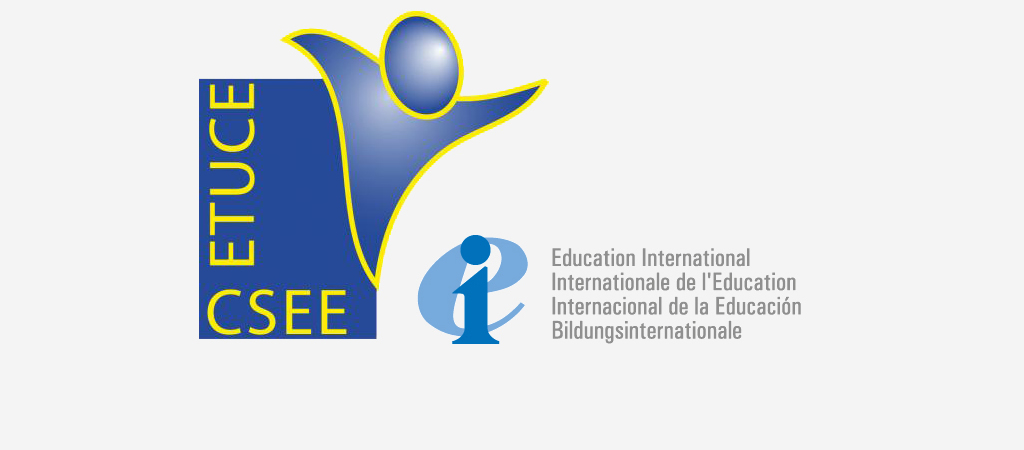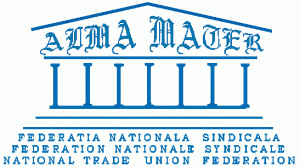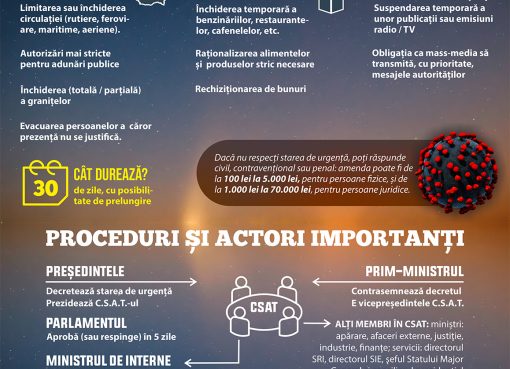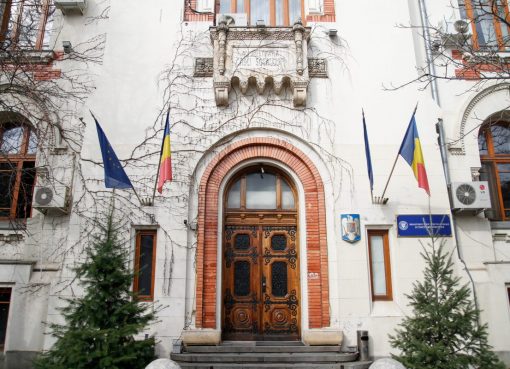Vineri, 22.10.2020, la ora 15 a avut loc o nouă întâlnire on-line, in cadrul proiectului “E-speed – European Social Partners in Education embracing Digitalisation: Challenges and opportunities for European Trade Unions and Employer organisations in the digital era” . FNS Alma Mater a fost reprezentata la aceasta intalnire de d-na Anca Sipos. Discutiile s-au canalizat catre continutul chestionarului care se va trimite in curand tuturor organizațiilor afiliate. Studiul de caz pentru România a fost stabilit pentru 20-22 aprilie 2021, la București. In viitorul apropiat vot fi stabilite detaliile acestui eveniment.
Iata mai jos procesul verbal al acestei intalniri.
Present: Anders Pohrs (GL, Denmark); Anca Sipos (Alma Mater, Romania); Valeria Mallia, and Antonio Olivari (MUT, Malta); Christof Jank and Roland Gangl (GÖD, Austria); Daniel Wisniewski (EFFE) and Isaline Osalier (EFEE), Jens Vermeersch (GO!, Belgium); and Asen Ivanov Alexandrov (ASSPRB, Bulgaria), Susan Flocken; Paola Cammilli; Marie Raverdeau; Miltyanna Antone; Seifu Habtemichael (ETUCE)
1. Welcome and ‘tour de table’
Susan Flocken welcomed everyone in the AG meeting, introduced herself and ETUCE. ETUCE is updating its work programme and one of the upcoming relevant topics is digitalisation. ETUCE has a policy paper on ICT and Education, to which some members of this group contributed. Shestated this project could not be timelier as COVID-19 has shown that digitalisation is important as many schools were not ready to move to distance learning. We need to look at equality, training and skills. The privatisation of digital learning and of education, how funding is going from the public and private. We will be looking at AI and the impact that it has on daily lives, school in general and how in preconditions education.
Daniel Wisniewski recalled the timely nature of the project. COVID-19 has made society work digitally. Education has moved online although the education sector was not ready to make this move. In Poland, for instance, teachers were forced to teach from home, with additional workload, and parents and students calling at all hours. Furthermore, most household do not possess one device per child.
The Advisory Group Members then introduced themselves and their experiences of dealing with digitalisation in education, specifically during COVID-19 within their own countries.
2. Presentation of the new project: project frame and expected results
Marie Raverdeau explained that the E-speed will take stock of what digitalisation entails for education for social partners. Education systems’ adaption to digitalisation brings about opportunities but also challenges. E-speed will explore, over the course of 2 years, the diversity of approaches within education systems and devise the future of education. Social equality will also be a central matter as the crisis has highlighted gaps in access to digital education. E-speed will explore the possibility of digitalisation in achieving an inclusive education. We must ask how the development of AI, data etc. will impact our daily lives. The project will highlight national issues. Shefurther stated that research expert will assist in the project. There will be two case study visits involving two education institutions in Romania and Denmark. These case studies will help design a research report. The final conference will present the work. The main outcome will be the research report and possibly a joint statement. The E-speed project will come to an end in January 2022.
Marie Raverdeau gave all Advisory Group members the opportunity to share the challenges faced by education systems in each country regarding digitalisation.
Anca Sipos explained the issues with teleworking in Romania, as working time is not addressed and the law does not specify how to pay utility consumptions whilst teleworking. Teleworking should be taking into consideration collective labour agreement. Primary and secondary teachers do not have enough training to use digital tools or teach online. There is not enough digital equipment for both teachers or students. Disadvantaged areas in Romania have issues as there are students who do not have equipment or signal at home.
Anders Pohrs stated that in Denmark, ICT tools have been normalised, as students and teachers enjoy their use. However, more critical voices are emerging among teachers and students. Lack of social contact also negatively impacts students’ motivation, and reduces their attention. The lack of face to face interactions also limits the ability of teachers to convey their messages. Many want ICT out of the education system and teaching profession, as it increases workload and furthers isolation.
Valeria Mallia explained that in Malta, schools have been closed since March, and lessons have been taking place online. In the beginning teachers were estranged on how to proceed with teaching online so they all took different steps. There were issues of privacy as teenagers would take pictures of teachers whilst in lessons, or teachers didn’t want to show their private homes or, there were children at home so they could not do so. From a students’ perspective, they are not receiving feedback from teachers. The system is still lacking behind with digitalisation. Students are still not allowed to take phones into school, but certain activities cannot be done without certain devices.
Cristof Jank, stated that in Austria, schools changed significantly since 16 March. Social differences made it difficult to match the quality of traditional education. While many work from home, not everyone has the appropriate infrastructure at home or a room to study in. A variety of platforms are being used but students and teachers lack training. He explained it is the first time in his career that students are missing school and would rather be in schools than at home. Many are not motivated to work at home. Students also lack a clear schedule and check their emails day in day out, facing an increased workload. The government now gives devices to compensate inequalities.
Equality and privacy are core issues, digitalisation must not mean social distance. Traditional schooling is very important. Staying at home is not a dream for students, it is a nightmare.
Jens Vermeersch explained that, in Belgium, teachers had to quickly change the way that they operate and ensure that they are maintaining opportunities for all students. Belgium has been offering free internet connection for those who need it and devices for families in need. In terms of vocational education, hands-on teaching cannot be moved online. Schools slowly reopen on 15 May, following the trend of infections. Extra evaluations and examinations are not a good idea. Belgium is not like the UK and France where certain exams dictate your future. Most schools have the platform Smart School, which was used to send letters to parents, and is now used to teach.
Roland Gangl said that public opinion on teachers is now excellent as parents discover how hard their work truly is. When discussing reopening schools in May, it was thought only some would go back to schools, but now, near 100% of students are back. The social aspect is very important.
Marie Raverdeau called for participants to develop discussions based on the feedback. The following points were raised:
- There is a shortage of teachers in 24 countries, COVID-19 is changing teachers’ image.
- The attractiveness of the teaching profession is high on the agenda.
- There are schools in the UK using VR and presentations which teachers enjoy working with.
- With the right infrastructure, using digital tools can improve the attractiveness of teaching.
- COVID-19 has highlighted that teachers are irreplaceable.
- Traditional school should not be replaced by digital school.
- Support for teachers is important, digital tools can provide this.
3. Discussion about the project schedule and activities
- Project outline and calendar
Taking stock of what the challenges for education systems, Marie Raverdeau introduced what this project can do. Two case studies will be in Romania and Denmark.
- Case study-visits
Marie Raverdeau explained there will be two tow-day case studies. There will be an opportunity to meet students and teachers. During this visit, the AG will be accompanied by a video maker and a researcher. Anca Sipos stated she could contact the Polytechnic University in Romania (Bucharest), to see if they could be one of the case studies visits. Daniel Wisniewski stated that Eduform is the only education employer that is an EFEE member organisation and they are not IT specialists. The most relevant employer would be the Ministry of Education but due to political changes no deal was made. For Denmark, Anders Pohrs, stated that IT is already used in schools for daily education and could therefore arrange meetings in schools about new materials. Marie Raverdeau explained that it is important to have broad views and that discussions are preliminary so extra information will be discussed in the next meeting as the researcher will be joining the AG.
- Presentation of the calls for tenders for external experts
Marie Raverdeau invited all Advisory Group members to disseminate the call for tenders for a research team and video maker.There will be a list of candidates by mid-June. They can be introduced at the next meeting. It is preferred that the team or researcher has expertise in equality and equal access to education. Jens Vermeersch brought forward the idea that the European commission, Delta, uses the Irish company H2learning. The company links with policy makers and European commission. Marie Raverdeau suggested Jens Vermeersch to have direct contact.
- Online Survey
Marie Raverdeau said the online survey will be sent out to ETUCE and EFEE’s member organisations. The AG will decide on its content.
- Research report
Marie Raverdeau highlighted thatit is still early to be talking about the research report, but it is not too early to think about it. The working language will be English but there is translation and interpretation, as outlined in the work programme of the project.
- Video in support of the project
Marie Raverdeau said the AG can will also decide on the format and content of the video. It will also decide what the target audience is and which issues should be addressed.
- Final conference
The final conference will be in Brussels at the end of 2021, with up to 100 participants, including EU policy makers.
- Visuals
Marie Raverdeau stated that the link between traditional and digital education is shown in the visuals of the E-speed project. The bigger visual is used for bigger screens and the smaller visual is used for headers. The AG members gave back positive feedback about the visuals.
- Calendar of activities
By 22 June, the AG will have selected a researcher and video maker. Marie Raverdeau suggested the next meeting to be in June. The Advisory Group agreed it was feasible to have the online survey completed. The third meeting should be between 2 and 8 November. The case study visits in Denmark should be in January 2021. The second case study meeting should be held in February 2021. Marie Raverdeau suggested there should be one month to discuss finalisation of the project and the report. The conference should be held in April 2021 and the last meeting in November 2021. The Advisory Group agreed on this calendar of activities. Anders Pohrs stated that weeks 7 and 8 are not good in Denmark as there will be holiday. Daniel Wisniewski highlighted these dates are fine but may be impacted by the COVID.
Marie Raverdeau will send documents and information on Doodle. If any members have ideas or issues, they should contact her. She also invited members to bring forward recommendations of experts and to disseminate the call for tenders.
Financial and administrative questions
Seifu Habtemichael stated that the financial rules of the European commission must be followed by ETUCE. AG will have to travel and are advised to book travel on time, at Commission rates. If not possible then members should contact the secretariat to help book travel. For each meeting Advisory Group members will receive a reminder to book tickets. A reimbursement forms will be updated during the project and will be there in each meeting. The members should fill each reimbursement and attach it to the boarding passes. There may be local costs which must be attached with bank details information. All original invoices need to be attached, for financial reports. Members will have 25 euro per day for lunch. Time sheets are needed by ETUCE so Seifu Habtemichael recommended to always fill in time sheets, this includes this AG meeting. Mid-term reports will be needed to be sent so time sheets will be included. Pay slips are also needed. This is only needed for ETUCE members. To protect personal data, send straight to Seifu Habtemichael to conform to GDPR regulations. If any member has any questions, they should contact Seifu Habtemichael.



